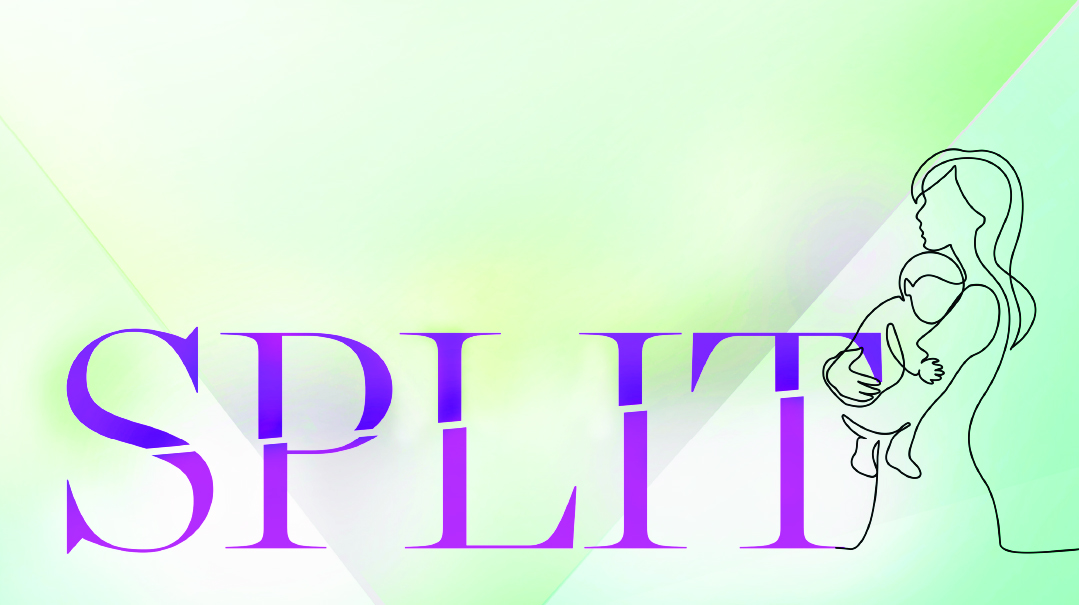Split: Chapter 10
| March 10, 2021People expected me to have a holy perspective about our children’s conditions from the beginning
The bus pulls up. I call to my children, who are distracted by the passing cars, then herd them onto the bus. Akiva and Efrat look around for seats and settle down on their own. I walk with Tali and lift her onto my lap.
My little girl is often a step behind her siblings. She has some developmental delays. Unlike her brother, who’s finished with all his therapies, she has a long road ahead of her.
I look down at Tali on my lap and at Efrat, who’s sitting on the seat next to us. The two girls wear matching pink coats, but I doubt any passerby would realize that they’re twins. Efrat is one size bigger than her twin, and her dark curls are a contrast to Tali’s blonde ones. It’s easy to miss the slight scar on Tali’s lip — it’s nearly faded from sight by now — but there’s no doubt that it’s had a large impact on her life.
Tali and Efrat are at such different places that there’s no risk of ever comparing them to each other.
“What do you want to do when we get home?” I ask my kids.
“Look at pictures!” Akiva says. It’s one of his favorite pastimes — schlepping the heavy photo albums from the shelf and flipping through the photos of him as a baby.
“That’s me,” he says, pointing to the images of himself pre-surgery.
He and Tali both know about their clefts. It was never a sit-down conversation because it’s an ongoing part of their lives.
People expected me to have a holy perspective about our children’s conditions from the beginning.
I didn’t. When we’re in pain, when our minds are screaming with questions and our souls shaking with fear, we aren’t always full of resolve. I still don’t understand Hashem’s Plan. I didn’t — and still don’t — always appreciate the obstacle. Life is hard, but life is also wonderful. I thank Hashem for my children every day.
I don’t believe that Hashem gives challenges to people who can handle them. I believe that He gives us challenges, and along the way, we grow into the people who can handle them.
And He doesn’t expect us to do it alone.
While the Jerusalem scenes rushed by the bus window, I remember all the ways we saw Yad Hashem. There was the woman in the park who reminded me which perspective I needed. There was the cleft mom who met me on the street and stopped to write down every phone number and resource that could be helpful. There are the books we read and the songs we listened to — all of which helped us hold on to our faith.
Sometimes I look over at Tali, playing with her doll near her sister or reading a book on the couch, and I wonder, “Is she going to be okay?”
But before I’m even finished asking myself the question, I have the answer. In my mind and heart, I know that Tali will be just fine.
As the bus continues along, I run through what I still need to do today. Dinner. Confirm the session with Tali’s speech therapist. Efrat is Shabbos Ima and we need to pick up treats. Akiva’s friend called to say he wants Akiva to come over and play. Our children are doing so well.
When they are older, Tali and Akiva will probably have more cosmetic surgeries. Meanwhile, our hands are full with the details that make up the hectic life of a family with little kids. It’s amazing to know how much we’ve grown.
Our incredible surgeons and their team at Hadassah Ein Kerem shepherded us through the treatments, our amazing parents support us every moment, and — most of all — the Ribbono shel Olam gives us the strength to continue.
Is the kids’ condition linked to our infertility? A result of the treatments we went through? Genetic? Right now, we still don’t know.
We do know this, however. Miracles come in many shapes and forms. Ours came as three beautiful children, two of whom were born with clefts. But the beauty, the joy, the nissim, the brachos — they’re not any less because of it. If anything, the beauty, the joy, the nissim, the brachos — they’re worth so much more.
The bus pulls into our stop. I look at my children and breathe in, a wave of gratitude washing over me. I help Tali and Efrat off their seats and call Akiva, who’s staring out the bus window. Then I take their hands and we head home.
THE END
Shoshana would love to connect with other moms who have children with clefts. She can be reached through Mishpacha.
(Originally featured in Family First, Issue 734)
Oops! We could not locate your form.


